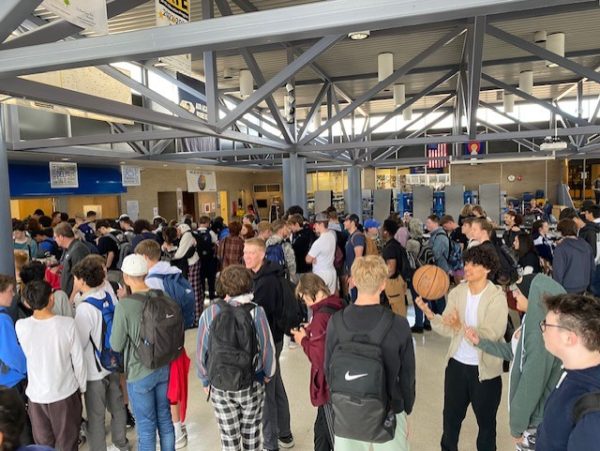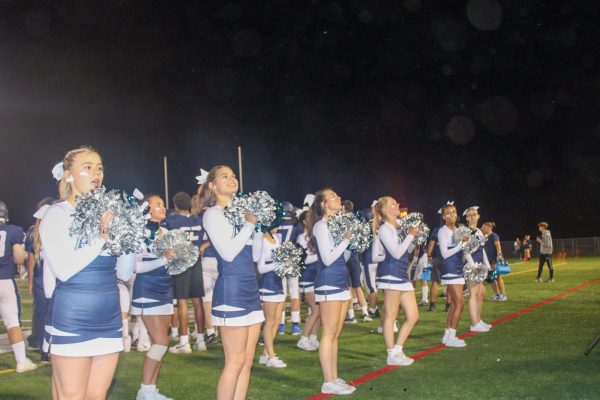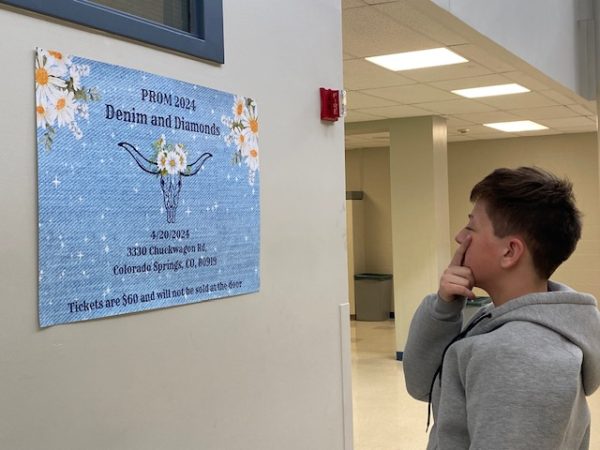When I Was Your Age…

The gap between the young and old is more dramatic in recent years. Labeled for reuse from Flickr.
A while ago, my 75-year-old grandmother approached me and seemed to have a few things to stay. One of them–a recurring criticism–was why I spend hours at a time watching people on YouTube. She explained that she just didn’t get it, and I responded that her generation wouldn’t get it. She didn’t grow up with the internet or phones or social media. It’s not her world; it’s ours.
What generation someone is from says a lot about them. It tells someone the society, political system, trends and media they grew up with. It gives us a quick frame of reference regarding others’ experiences that we can either take with a grain of salt or use completely against them.
Which one do you think is more common?
A trend of bashing younger generations has taken off and created a monster. It’s become normal to pair the word “millennial” with a bitter tone and a roll of the eyes. It’s easy to assume that millennials, and younger generations in general, are entitled, lazy and narcissistic. Some even go so far as to assume that millennials probably live in the basement of their parents’ house and spend much of their time scrolling through hundreds of photos of themselves trying to be “aesthetic” so they can post one on social media alongside a caption trail of meaningless smiley-faces (I think they’re what those whipper-snappers call “emojis”).
What’s not talked about often enough with the current, upcoming generation is the reality of their situation.
“I think younger generations have a lot of potential but are cast aside,” said junior Emma Killion. “[Older generations] view us as lazy and unmotivated kids who aren’t totally ‘prepared’ for the ‘real world.'”
Geometry teacher Kimberly Madden further explained the unique obstacles facing young adults today. “I think the current generation has it harder, in a lot of ways. While the amount of discoveries and inventions has skyrocketed, so has the amount of outside distractions, cyber bullying, cyber peer pressure, etc,” Madden added.
This is a reality of any kid growing up with a phone in their hands: social media warfare.
According to DoSomething.org, “70 percent of students report seeing frequent bullying online” and “81% percent of young people think bullying online is easier to get away with than bullying in person.”
There’s a lot more to Instagram and Snapchat than just sharing meaningless videos and posting pictures of yourself in hopes of likes and validation.
Social media is a way for people to express themselves: to share beliefs, opinions and art. It can also serve as a means to stay in touch with the important people in someone’s life who they don’t normally get to see.
However, social media also allows the spread of hate in the blink of an eye, and–for many teens these days–it’s impossible to escape. Bullying can now follow students home, blowing up their phones.
That is just one hardship of being a kid nowadays, not even mentioning the constant pressure from social media to share an edited and filtered version of yourself to give the illusion of perfection.
On top of all this, the world has changed so drastically in the last twenty years and many of us were born in the wake of 9/11. Young adults today face an uncertain world that seems overwhelmed with violence.
Madden explained that, “kids have to worry today about school shootings, shootings at concerts, malls, airports, ball fields, office buildings, etc. Kids also have to worry about ‘stranger danger’ like my generation never had to. I think it would be tough to be growing up now.”
“Everything is brand new and it’s what we’re growing up with,” Killion said.
However, there’s still some truth to the articles that circle the internet from time to time about the unbearable narcissism and laziness new generations are quickly developing.
Young people can be vain, self-absorbed and think the world owes them. And it can’t be denied that social media and technology has contributed to this. Having the internet at your fingertips 24/7 has developed this need for instant gratification. A lot of us don’t want to put the work in to school or jobs.
But, that shouldn’t allow older generations to lump the young altogether and call them vain or lazy, just like it’s not fair to say older generations don’t know how to use computers or how to find the Settings app on their phone. People shouldn’t support or participate in demeaning an age group without understanding that age group’s perspective.
This phenomenon isn’t unique, either. Older generations seem to forget they were once young and spry and ready for whatever the world would throw at them. Younger generations also neglect the similarities older generations may share with them.
I hope that one day all generations can come together despite our differences, take each other’s hands and sing “Kumbaya” in perfect harmony.
But, until that day, here’s some come-backs you can use when your great aunt Matilda starts giving you crap again:
Q: “You still live with your parents?”
A: “I can’t pay a thousand dollars in rent, buy food, and pay off my student loans at the same time.”
Q: “Why can’t you find a job?”
A: “Because they don’t exist.”
Q: “Why are you on your phone all the time?”
A: “Pretending to like people is overrated.”
Q: “Millennials are lazy.”
A: “Do you know how hard it is to create a good meme and keep up with your Instagram?”
Q: “I just don’t get why you watch hours of someone putting on makeup.”
A: “It’s an art form.”
Q: “When I was your age I went outside and enjoyed the world and made my own fun.”
A: “Sounds exhausting.”

My name is Olivia Joyce and I'm a journalist for the Jetstream Journal. I am a junior at Air Academy High School and this is my first year writing for...












